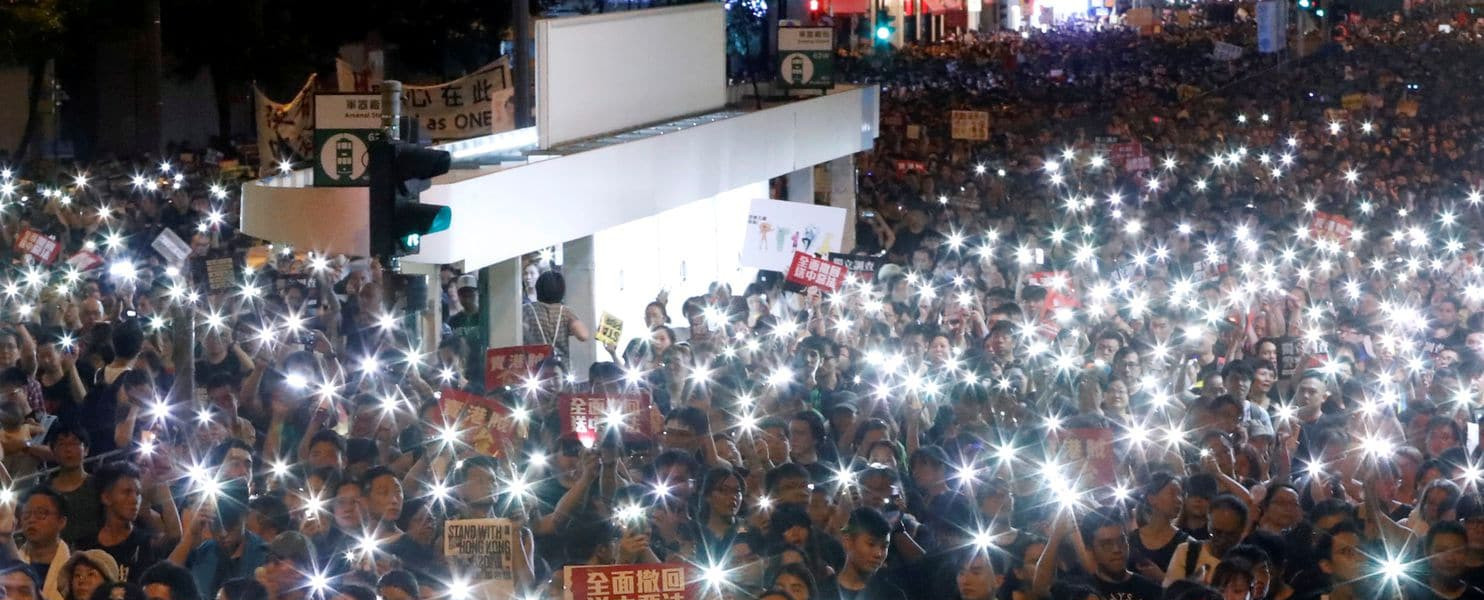Comparative Political Behavior

- Protesters in Hong Kong use the flashlights from their phones as they march on July 1, 2019 as part of the anti-extradition bill protests. (Tyrone Siu/Reuters)
There are few areas in political science where scholarly knowledge has progressed faster and further than the field of political behavior. Despite previous arguments as old as Aristotle that the mass public lacked sophistication and expertise to have a meaningful influence on domestic political processes, political behavior scholars have advanced important arguments to how ordinary citizens participate in politics, how they form opinions and attitudes, and how these influence the political process. This class reviews these arguments in both a broad and comparative scope. We will review scholarship on political behavior’s fundamental components: models of voting and turnout, public opinion formation, and value change. We will explore the multiple ways individuals participate in politics, from voting to multiple forms of “unconventional” political participation, even riots/mass protest. Our scope will be broadly comparative. Any political behavior class would be incomplete without a strong focus on the United States, but this class will situate U.S. political behavior alongside peer countries (e.g. Canada, France, Germany, the UK, among others). We will further expand our “comparative” scope at the end of the class with a focus on recent insights and problems in the political behavior literature, ranging from debates of democratic deconsolidation to insights from the international conflict literature about how external threat and conflict influence political behavior. Students who complete this class will have a broad overview of the flourishing field of political behavior.